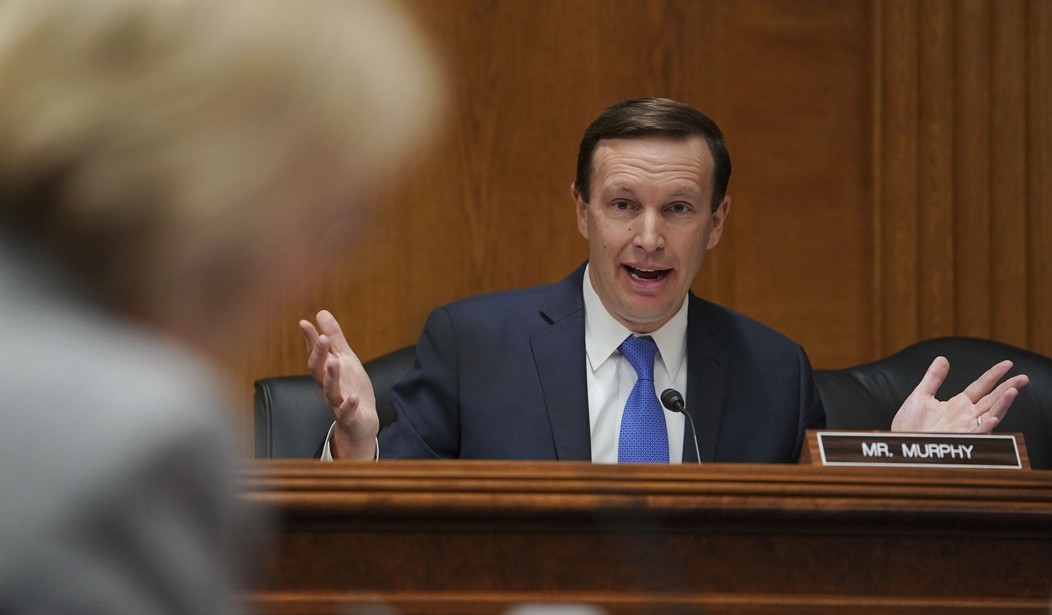After days of negotiations that worried Second Amendment advocates and law-abiding firearm owners due to talk of sweeping new restrictions, it seems like — for now at least — the Republican members of the bipartisan working group held the line on the strictest proposals, though they didn't stop Democrats on all fronts in the talks that made many conservatives scratch their heads.
The bipartisan group of Senators — led by Chris Murphy (D-CT) and John Cornyn (R-TX) — announced their proposal for legislation they seem to think has a chance of making it through their evenly-divided chamber.
In a joint statement, the senators said their plan will "protect America’s children, keep our schools safe, and reduce the threat of violence across our country" while citing a duty they feel to "come together and get something done." Never mind, apparently, that all the restrictive gun laws in Chicago and elsewhere haven't protected residents.
The statement continued saying the agreement "increases needed mental health resources, improves school safety and support for students, and helps ensure dangerous criminals and those who are adjudicated as mentally ill can’t purchase weapons," again, as if previous laws to keep guns out of criminals' hands had worked. "We look forward to earning broad, bipartisan support and passing our commonsense proposal into law," the statement concludes. We'll see.
The proposal includes providing "resources" — likely grant incentives — to states if they implement so-called "red flag laws." It also includes investing taxpayer dollars in mental health services for families and in schools along with school safety resources to "to help institute safety measures in and around primary and secondary schools, support school violence prevention efforts and provide training to school personnel and students." The proposal announcement also says legislators will seek to include an "enhanced review period" for firearm purchasers under 21 years old.
Recommended
Perhaps notably — and showing Democrats did not get all the things they've called for in the wake of the tragedy in Uvalde, Texas — is a lack of their buzzword assault weapons ban, high capacity magazine restrictions, a federal red flag system, or an increase in the minimum age to purchase certain rifles.
To be clear, the lack of those items in the framework proposal does not mean Democrats won't try to sneak in some version of them as an eventual piece of legislation is developed.
As WaPo previewed before the official announcement of the proposal, the inclusion of billions of federal dollars for school security programs and mental health care is probably the only thing the proposal has going for it with most Republicans.
Townhall reported last week that an armed school resource officer and secured doors kept an aggressive man from entering an elementary school filled with children. The SRO took the individual down with assistance from local law enforcement while most children inside the building were unaware that anything had happened outside. The training and protocol that worked there should be used for a framework, not gun-grabbing Democrats' CNN talking points.
Throughout the negotiations, Republicans involved had tried to assuage concerns from firearm owners and gun safety advocates. Sen. Cornyn said that the forthcoming deal was "not about creating new restrictions on law-abiding citizens" but "about ensuring that the system we already have in place works as intended." Yet several of the pieces of the framework seem to include new restrictions, albeit lesser than a blanket ban on "assault weapons" or magazines.
And while the group may have reached a tentative agreement, they're only a small group of the U.S. Senate — and several Republicans in the crew such as Susan Collins (ME) and Mitt Romney (UT) are not exactly known as standard bearers for the GOP. At least 60 senators in all would be needed to support any resulting legislation in order to overcome a potential legislative filibuster.
As we've learned before, a statement of agreement between a small group of senators is anything but a done deal. We've also learned that what might seem to be a workable legislative framework can turn into a Frankenstein's monster of horrible policies as Democrats scheme to use the bipartisan cover of squishy Republicans to ultimately get their way.
The best thing for any Senate Republican to do at this point is walk away from the table and declare opposition over anything even remotely concerning in the tentative agreement — the incentive for red flag laws or the enhanced review for under-21 purchasers, for example — or legislation as it ends up being written.
There's less than five months until the midterms, Democrats need at least ten Republicans to even move a bill to a vote, and there's no reason for Republicans to cave on an issue as critical as Americans' Second Amendment freedoms just to look like they're playing nice. Democrats would never do the same if they were in the minority, and there are better, more effective, less freedom-depriving options available to respond to tragedies like the one in Uvalde. Harden schools, fund resource officers, train willing staff, and work to remedy the myriad failures of government that are discovered in the wake of such tragedies.

























Join the conversation as a VIP Member